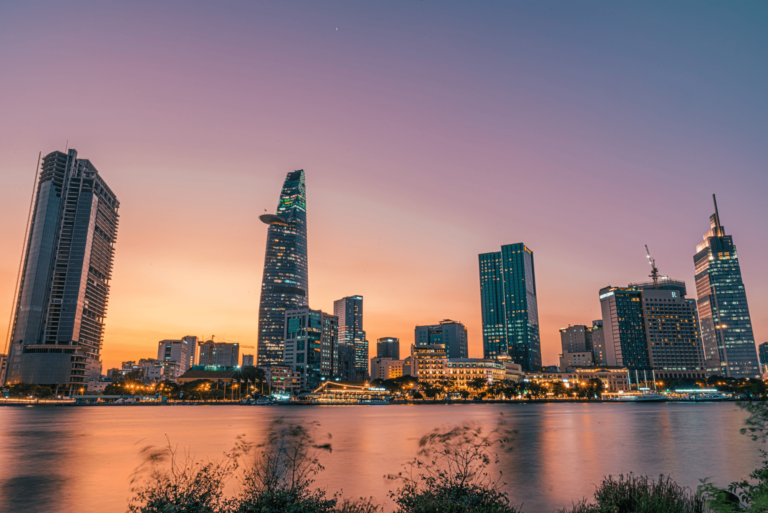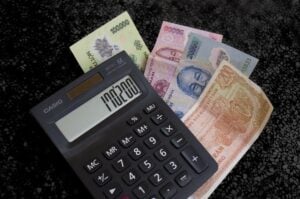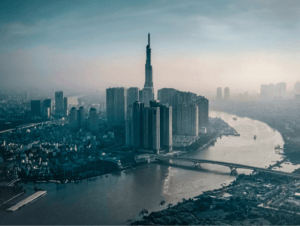Vietnam has always had a magnetic appeal as a tourist destination. With stunning urban centers like Ho Chi Minh City, low cost attractions spread across vivid landscapes, a mouth-watering street food scene and plenty more to fall in love with, it’s not hard to understand why more people than ever are seeking a taste of Vietnamese life.
But what if you’ve already had a taste (or several) and are ready for more? What if you think you may want to actually build a life in Vietnam?
You wouldn’t be alone, for starters. Even before the pandemic, with the global rise of remote work and the country’s rapid development, expats had been flocking to this gem of Southeast Asia.
Now that the days of border closures and lockdowns appear to be behind us, digital nomads and those looking for a pivot in life or career are thinking beyond their home country’s borders.
And for anyone looking to immerse themselves in a foreign wonderland—for just a fraction of what you’re likely used to in cost of living, we might add—Vietnam is a top choice. It even ranks as the 7th all-around best expat destination on InterNations’ list for 2022.
Let’s break down some of the key draws of the country, the places where most expats choose to live, and some useful insights straight from people who have experienced it all themselves.
What We’ll Cover:
- How safe the country is compared to others in Southeast Asia
- The major pros and cons of living in Vietnam
- Insider advice on expat life right from the source
- The best places to settle for expats living in Vietnam
Table of Contents
Is Vietnam Safe?
First things first, safety is a key consideration when exploring a foreign country. In the developing world, it’s definitely not always a given (though nowadays safety in major cities in even the wealthiest nations is far from guaranteed).
Crime
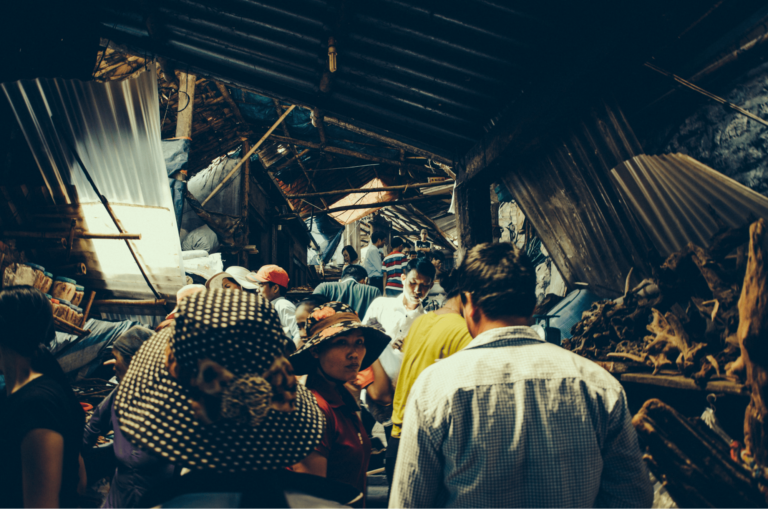
You’ll be glad to know then, that Vietnam is very much considered a safe place to live. While crime ranks a bit higher on average here than in neighboring countries like Thailand or Singapore, the risk of violent crime is much lower than in the US, for example.
Petty crimes and “crimes of opportunity” (like pickpocketing and phone snatching) can occur in a Vietnamese city like Ho Chi Minh if you’re not careful, but it won’t be a problem if you take even the most basic precautions. You know, things like keeping your cash out of sight and your wallet in a cross-body purse or front pocket (or a body wallet for even more assurance).
Natural Disasters

While Vietnam has a tropical climate and is therefore subject to monsoons now and then, earthquakes and tsunamis are about as common here as they are in Thailand—which is to say, not very. Whereas major natural disasters are a persistent threat in other countries in the region like Indonesia and Japan, Vietnam’s geographical position keeps it more or less out of harm’s way.
Helping Hands

Beyond various threat levels as a measure of safety in the country, it’s worth noting that Vietnamese people on average tend to be quite friendly, welcoming and helpful. If you’re lost, struggling or in an accident, other expats and locals alike will usually come to offer some assistance.
Read all about crime, healthcare, weather and other safety considerations in Vietnam in our detailed breakdown article.
Pros and Cons of Living in Vietnam
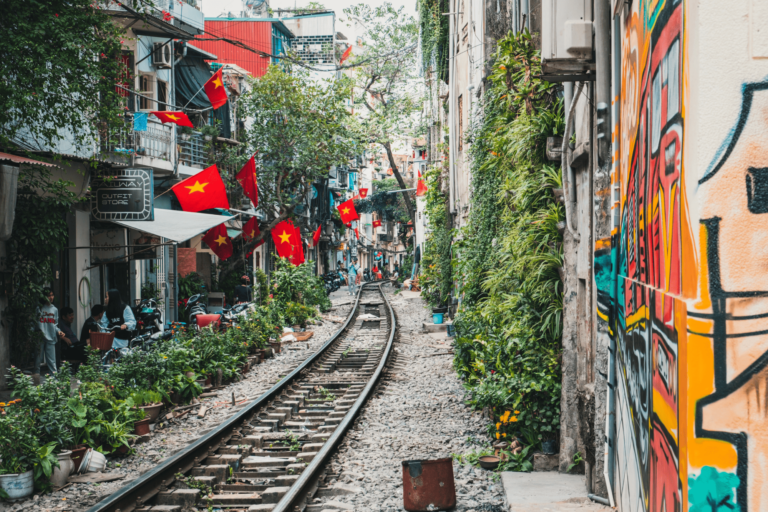
Let’s break down the most substantial and interesting aspects of life in Vietnam.
Upsides: The Pros of Living in Vietnam
- Cost of living
- Weather and climate
- Vietnamese culture
- Delicious food
- Excellent base for remote work
On the positive side, which in our experience significantly outweighs any negatives, there are a few major points we can pull out and focus on:
The Cost of living
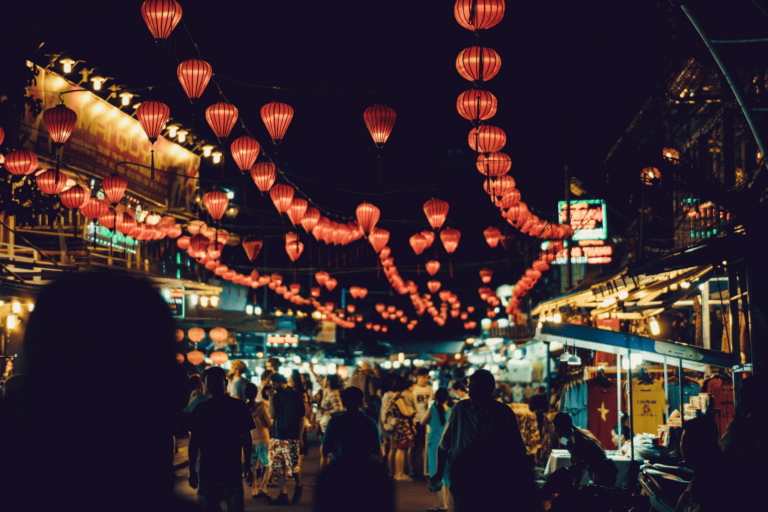
Did we mention that living in Vietnam is cheap? How cheap, you ask? How about 50% cheaper overall than the United States is on average, and a whopping 76% cheaper in rent! And that’s an average, which means it’s based on a blended US cost basis that factors in places like rural Illinois along with San Francisco and New York. So if you’re coming from a major US or European city, that difference is going to be even more significant.
Dive deeper into just how affordable Vietnam is to live in with our article dedicated to just that, if you want to really see how much you can save by moving here.
Weather and Climate

Vietnam spans all the way from warm tropics in southern Vietnam to somewhat cooler temperate zones in Hanoi and the north. You can enjoy beautiful beaches and perpetual summer without committing to sweltering heat every day—a unique attribute compared to many of the country’s Southeast Asian counterparts.
Like other ASEAN nations, Vietnam has a dry season from November to April, followed by the rainy season between May and October. But don’t write off those summer months as a total washout. While there are definitely some dark and stormy days, the wonderful thing about a tropical rainy season is that it still provides plenty of sunshine. Many days will still be without rain entirely, and when storms move in they often do so in the afternoons and evenings, leaving the mornings dry and bright.
The People and Culture
The culture is energetic, warm and embracing in a way you’ll notice on a daily basis. It’s centered around family values and of course, exquisite yet incredibly cheap food. And people are mostly very happy, friendly, and willing to help someone in need.
In terms of the Vietnam way of life, people here (whether expats or locals) tend to be relaxed and laid-back. They work hard, but they’re without a doubt on the ‘work to live’ vs. ‘live to work’ side of the spectrum.
There’s a general atmosphere of ‘live and let live’, similarly to Thailand, that allows for a vastly diverse array of lifestyles to happily coexist side by side, whether in cities, on beaches or farther out in Vietnam’s gorgeous rural settings.
A Remote Work Haven
In terms of serving as a base for remote workers, the country is more attractive than ever. While Vietnam struggled economically for decades after the Vietnam War, it’s relaxing of hardline socialist economics over the past two decades along with its acceptance into the World Trade Organization in 2007 has substantially boosted its growth and prosperity.
The result is that Vietnam is currently in a “sweet spot” state of rapid development in which its urban economic centers lack few of the modern conveniences one might find in a given US or European city, while living costs remain at a fraction of that in western destinations.
If you serve an international client base you’ll have fast wifi and full-coverage mobile data, access to co-working spaces and high tech resources. And you’ll be able to cut your rent down while likely upgrading your living situation.
It’s truly a magical time to live here.
Downsides: The Cons of Living in Vietnam
- Traffic and transportation
- Pollution
- Difficult language
- Settling can be a big challenge
Traffic and Transportation
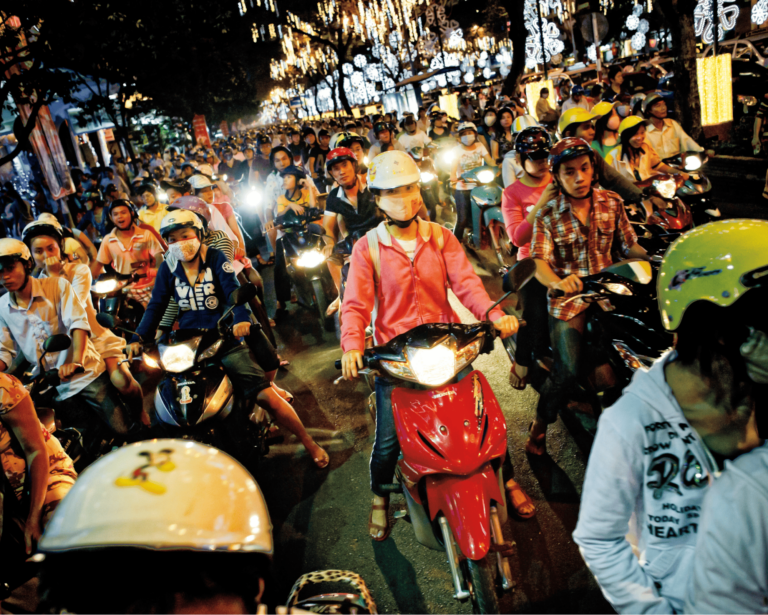
Like all places, Vietnam has its quirks, complexities and annoyances. For one, traffic here is truly something to behold. While Bangkok has become synonymous with chaotic driving and heavy delays on the road, Vietnam’s cities have it beat, hands down.
If you’ve ever visited, you’ve likely sat in awe (from the sidewalk) or in terror (from the backseat) as cars and motorbikes seemingly fought over who could deliberately violate the most traffic rules in the shortest distance. In a truly bizarre display, vehicles fully ignore lane lines and any preconceived notions of “right of way”, instead substituting constant horn blows as a way to simultaneously notify and warn other drivers.
The result is a jaw-dropping level of chaos you have to see to believe. You’ll hear it too—whether you’re on the road or off—as the honking is seemingly random and truly ceaseless.
It would be genuinely impressive if not for the stress of having to navigate it in your daily life. Thankfully all this madness occurs at relatively low speeds on most of the cities’ tight inner roads, so while it can be jarring at first, it’s at least low-octane.
Mass transit isn’t really a thing here, unfortunately. At least not yet. While Ho Chi Minh City is planning a major new electric bus network, there currently isn’t a mainline metro system. That means you’ll be on those roads in some form or another a good amount of the time.
Air Quality and Pollution
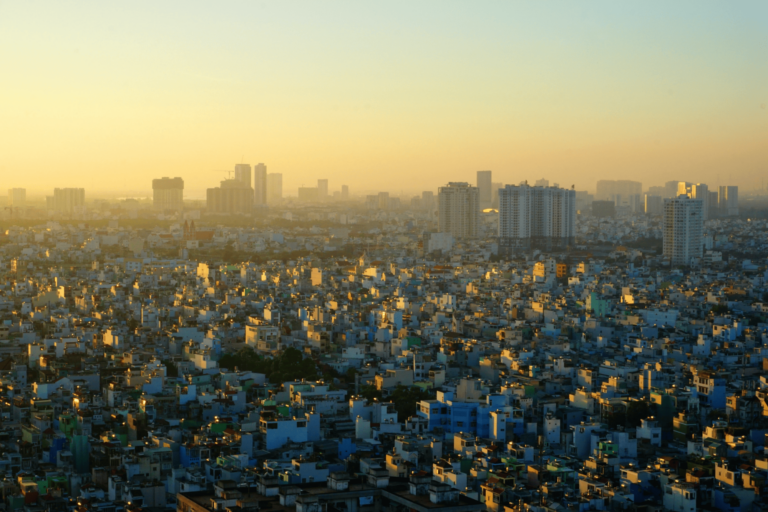
Pollution is another unfortunate factor of Vietnam’s current state. All that road traffic sure isn’t made up of clean EVs.
Not to mention rapid development (yielding lots of positives for both locals and expats) comes with an environmental toll. Hurried industrial expansion and large-scale construction accompanying the country’s growing economic relevance have major ecological costs.
Air quality certainly isn’t always bad, but it isn’t always ideal in major urban areas. Meanwhile, as is sadly the case in many developing nations around the world, Vietnam is currently allowing for irreversible ecological destruction as it modernizes and builds out industry-supporting infrastructure.
Language Struggles
Vietnamese is undeniably a very difficult language to learn, especially if you’re new to tonal languages in general. Relying on 6 distinct tones (or different pronunciations using inflection, similarly to how English speakers end questions vs. statements) means the same word can have half a dozen totally unrelated meanings.
The good news is speaking fluent Vietnamese isn’t a requirement to live here, and you likely won’t struggle very much in simple daily interactions if you never get past “xin chào.” Thankfully, the language uses latin characters, which will make it a lot easier to pick up on as you encounter signage and other written materials.
Visa and Residence Barriers

More significantly than the other factors though, is the challenge of getting a long-term renewable Vietnam visa and formally settling here as a resident. Foreigners can’t actually own land and the process for becoming a legal resident in many cases can boil down to marrying a Vietnamese lady (or man).
Because of the complexities imposed by the Vietnamese government, there are plenty of expats who still rely on the tourist visa for most of the time they spend in the country.
Having said that, if you’re a skilled professional you may be able to avoid the typical visa run strategy by joining a global talent company like Iglu. They employ qualified professionals who want to work remotely as long as their skills match their business model, which then comes with eligibility for a work permit.
You can find out all about the usual process for obtaining a work permit in Vietnam in this in-depth guide.
Where Do Many Expats Live in Vietnam?
Exactly where to live once you’ve chosen Vietnam as the country you’d like to base yourself in is far from a given. But this is a good problem—and one that entails adventure as you work to solve it for yourself.
With an expansive longitudinal span producing varied climates in different cities, each with its own quirks and character, your options are plentiful and exciting to explore. We’ve selected 4 great options, two of which you may not have previously considered.
Da Nang
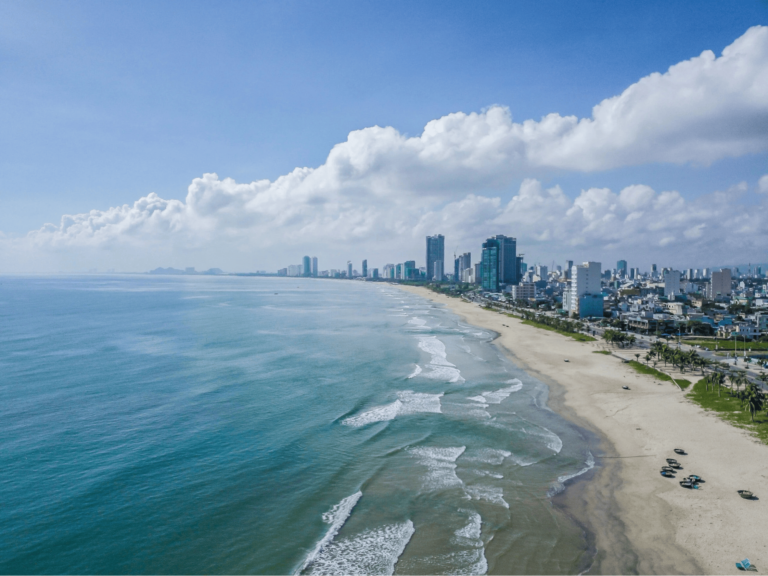
Home to a mix of beautiful beaches and all the conveniences of big cities in one beautiful, inviting package is Da Nang.
Perched perfectly on the center point between north and south Vietnam, the landscape evokes beach-city vibes a la Miami or Pattaya, with a much more relaxed and authentically Southeast Asian vibe.
It features a booming business center with all the modern conveniences one would want for everyday life as a remote professional, while offering walking-distance access to sky-blue coastlines. Further inland are gorgeous mountains that give Da Nang the feeling of being its own little world, beautifully balanced between nature and comfort.
Warm throughout the year, abundantly fresh sea air and a vibrant coffee culture further beckon you home to this ideally situated Vietnamese haven.
Hue
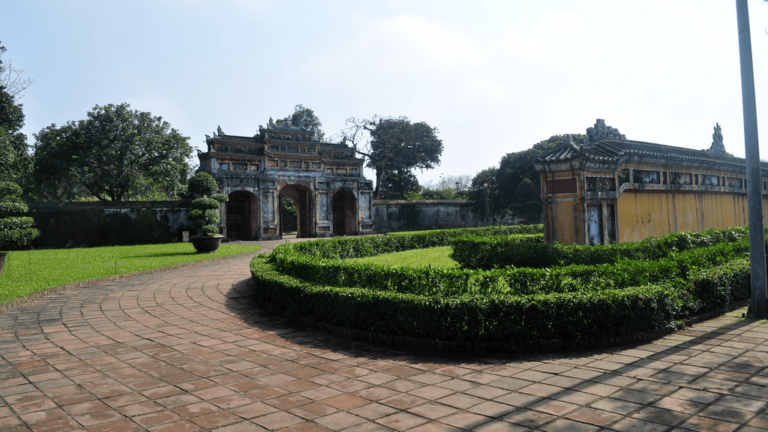
Just north of Da Nang in central Vietnam, the former imperial capital of the Nguyen Dynasty, Hue offers a wondrous escape from the bustling Vietnamese cities it sits between.
While it’s rapidly modernizing with a focus on sustainable development, expats can enjoy the culture emanating from monuments and architecture left over from the ancient town that preceded its current form. You can also visit the Complex of Huế Monuments, a famous UNESCO World Heritage Site.
If you’re looking to truly experience the most authentic Vietnam, rather than living in the more westernized areas of the country, Hue won’t disappoint. Vietnamese culture is on full display here, with Vietnamese families living more traditional lives.
Here you can set yourself up on a diet of some of the most delicious Vietnamese food you’ve ever tasted while enjoying an incredibly low cost of living that beats the already great deals you’ll find in the big cities.
Read all about this magical place in this great article by our resident Vietnam expert, Tim Sutton.
Ho Chi Minh City
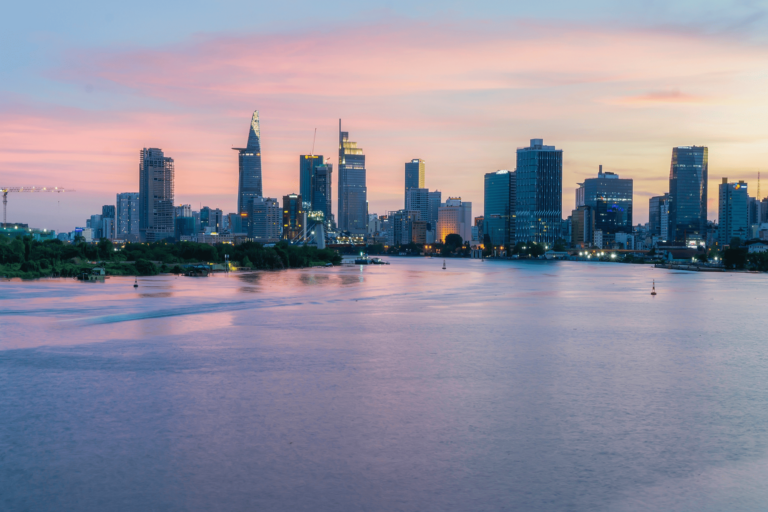
Vietnam’s young upstart city, commonly called Saigon amongst locals, is probably the part of Vietnam you’ve heard the most about so far. It’s lively, fun and chaotic by all accounts.
Far more heavily influenced by foreign cultures—perhaps most notably that of the French—many expats and locals alike consider Saigon to be Vietnam’s true melting pot. Everything from food to architecture and markets here have been somewhat influenced by international touches, while still somehow remaining authentically Vietnamese.
Ho Chi Minh City is right in the heart of the tropical south, making it bright and vibrant, but also quite hot. Days begin early to beat the afternoon heat, and end with parties around street food vendors. Just watch out for cars!
Hanoi
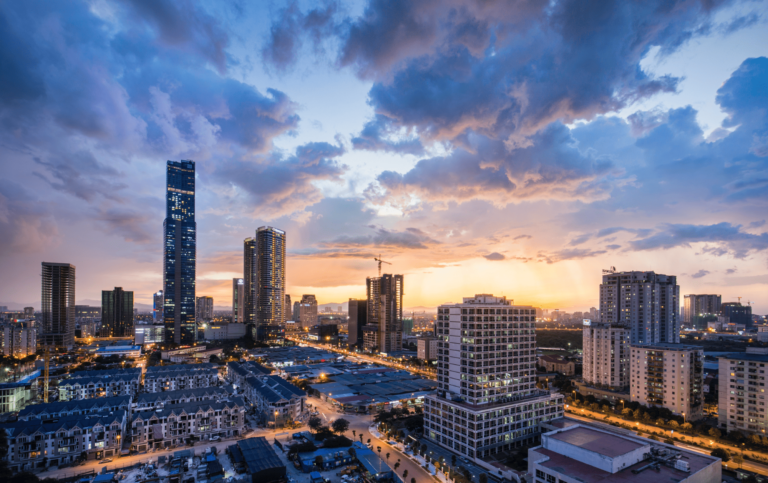
The capital of Hanoi is situated inland of Ha Long Bay in the north of the country, which shields it from a lot of the intense heat characteristic of southern regions. Dubbed ‘The City of Lakes’ because of how 20 of them integrate seamlessly with the urban landscape, Hanoi is proudly a traditional city compared to its younger, more popular sibling, Ho Chi Minh.
Known for its unique and delectable take on coffee as well as street stalls selling ice cold, home-brewed beer, Hanoi has its own style amongst residents and unique food tastes compared to southern cities.
It’s also considered by some to be more of an enchanting city, where you can live in a nice condominium with lakeside views and stroll through districts like the French Quarter at your leisure.
Insider Tips Straight From the Expat Community
Not only is this a great time to move to Vietnam because of the booming economic development taking place there, it’s also ideal because we can share tips and advice based on our own experience of having figured it out for ourselves.
1. Make Travel a Part of Your Lifestyle

Whether it’s to facilitate visa runs when you’re new and just getting set up for the long-term, or simply to take advantage of your proximity to so many wonderfully exotic destinations, expats here pretty much always have a trip planned
With domestic and regional airlines frequently offering flights for less than you might otherwise spend on 2 tanks of gas, building affordable trips into your lifestyle will help you make the most of being based in Vietnam.
2. Watch Out for Scams
Especially those centered around visas and involving taxis.
While overt crimes and acts of violence aren’t a common occurrence in Vietnam, scams are something to watch out for. The most common forms target obvious tourists and wealthy looking foreigners who seem eager to trust and possibly a bit naive.
When taking a taxi it’s best to politely decline any offers to bring you to shops with great deals or rare items, as these are certainly disingenuous.
Similarly, when it comes to finding help with your visa setup, do your research and get referrals before trusting an “agent” you may find online or in a local storefront. Anything that appears too good to be true almost definitely is. Most services offering long-term renewable visas or work permits for a one-time fee—especially if you don’t otherwise meet the requirements—should be avoided.
If you’re unsure, a great way to get recommendations and check the legitimacy of any service is to join in on the conversations taking place in various expat Facebook groups. People there are usually quite happy to give it to you straight and share guidance from years of experience.
3. Carry Good Travel Medical Insurance
Healthcare in Vietnam is both high quality and incredibly affordable—if you’re smart and prepared.
While private hospitals with the best quality of care are plentiful, accessible and still far cheaper to use than their western equivalents, your costs can easily add up if you’re paying out of pocket for everything. Far more critically, though, is accident preparedness. While the cost of basic care is massively lower than that in the US or most European cities, if you have an emergency or are facing a serious health crisis, your costs can easily balloon up into the stratosphere.
The short of it is that while your average doctor’s visit may cost you less in total than your insurance copay for the same service back home, don’t apply the same strategy for your entire healthcare plan. Your visa will likely require you to have a certain amount of health insurance anyway.
But the real move in this area for anyone moving abroad is to purchase genuine expat health insurance, which is a policy designed to cover people who may not be able to call the same country home from one year to the next. These plans offer wide ranges of geographic coverage, which also empowers you with full health insurance on trips abroad. It’s the smart expat move that definitely beats travel insurance.
4. Prioritize Getting a Vietnamese Driver’s License
Despite the heavy dependence on motor vehicles, the government doesn’t make it particularly easy to show up and get moving. You’ll need an international driving permit at the very least, and that’s just for two wheels—unofficially.
Motorbikes are by far the most common means of conveyance around cities, but IDPs aren’t even officially valid when accompanied by a foreign driver’s license. Forget using one to legally drive a car. You may be able to get away with having a valid license from an ASEAN nation, but there are no guarantees there either.
So if you want to avoid legal risks on the road in addition to the physical ones, get this taken care of and out of the way ASAP.
Wrap-Up: Making a Life in Vietnam

If you’ve read this far and only fallen more in love with the idea of moving to Vietnam, we can totally relate. If you’re craving more and want to start seriously planning out how to make the move possible, give our Ultimate Guide to making the move a read. Or better yet, talk to some real life expats directly and see if we can help you get set up to legally work here—on your terms and without the bureaucratic headaches. Get in touch with the experts at Iglu today!

